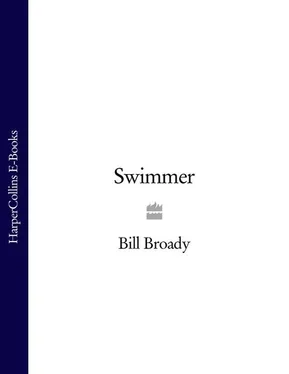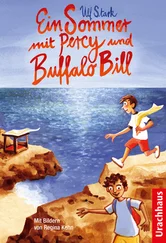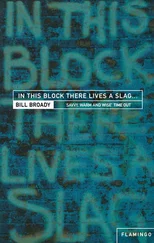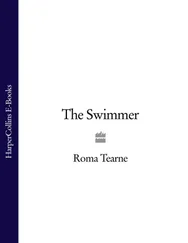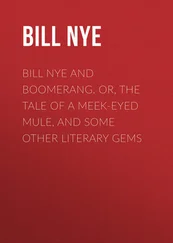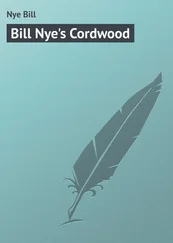S W I M M E R
B I L L B R O A D Y

Apparent rari nantes in gurgite vasto
VIRGIL: AENEID 1, line 118
Here and there in the wastes of ocean a swimmer was seen
Cover
Title Page S W I M M E R B I L L B R O A D Y
I
II
III
About the Author
Copyright
About the Publisher
YOUR FIRST AND LAST MEMORIES were of butterflies …
… Of watching the Red Admiral as it tracked patches of watery sunshine across the garden. It was like an illustration from one of Dad’s books, animated – too beautiful to be alive. Vivid and gay but serene, silent: what you had taken for the sound of its wings was the beating of your own heart. You could feel its flutterings on your nerve ends.
Before Dad’s identification you’d named it already, in the fast-receding synaesthetic language of babyhood, MRRLYMBRXBRX. You called, and for a moment it rested on your knee, so light that you felt no tickle of contact, its wing-rows of unblinking black eyes looking back into yours. Then, with a sudden urgent resolve, it began to rise in a tightening spiral until, seeming to pierce the flat grey clouds, it disappeared.
‘Where has it gone?’ you wailed.
Mum sighed: ‘Heaven, I suppose.’
Dad said something about preferring moths, but you hated those diamond-faceted eyes, the nightly sound of their hairy bellies slapping on your windowpane. They went away if you turned out the lights but you were too afraid of the dark: if one ever touched you you’d die – ‘Kill not the moth or butterfly,’ said Dad, ‘for the last judgement draweth nigh.’
You used to scream a lot, especially when plucked from your long-cooled bath. Your feet thudded against Mum’s chest: shutting your eyes, it seemed, no longer made you invisible.
‘She’s a bad girl!’
‘No,’ said Dad, ‘she’s a mermaid, a nixie.’
It wasn’t the water itself that you loved, more that the feeling of suspension gave you some illusion of flight – like when you’d clutched your birthday kite, a tiger-fanged Chinese demon, before a Primrose Hill wind twitched its string from your mittened hands and bore it down into the hazy silver city.
At Worthing, aged five, you learned to swim. Dad had left you on the beach, to seek inland the graves of famous writers: Mum took off her belt and tied it around your waist, then grimly led you to the sea. For a moment you were scared – the water seethed and pummeled at you like tiny indignant fists – then realized that it was all in play, that this new, white world was welcoming you, that these whispers and roars were a language you understood, that the tides beat with the same pulse as your circulating blood, that you were not so much discovering as returning.
You splashed, swam, flew. When Dad returned you no longer needed towing: ‘We should have called her Woglinde! Wellgunde! Flosshilde!’ Mum looked depressed again, as if things hadn’t quite worked out as planned. You edged further and further out, ducking regularly to scry the muddy depths, somehow knowing just how to breathe. Then you surfaced to warning shouts: a huge wave was ahead, like a rushing steel wall … but you struck out straight towards it, only to see it part miraculously to let you through – just as well, you thought, otherwise you’d have smashed it to vapour.
By the end of the week you had two distinct strokes: Dad’s thrashing ‘Not Drowning But Waving’ style, and Mum’s stately crawl. On the way home, Dad stopped the limping hire car to picnic on the Downs: as you lay on your tummy eating crab and cress sandwiches you realized that your legs were still automatically scissoring away. Suddenly you were enveloped by a mass of tiny, pale blue butterflies: it was as if the sky had exploded and all its pieces were now floating gently down.
‘Lysandra coridon poda,’ said Dad. ‘The Chalkhill Blues. Here for the horseshoe vetch.’
‘He knows everything about everything,’ said Mum, ‘and it’s never got him anywhere.’
Dad assumed a silly German accent to quote his particular hero, that philosopher with a name like a sneeze: ‘To me, the butterflies and soap-bubbles and whatever is like them amongst us seem most to enjoy happiness.’ On the back of his white shirt the Chalkhill Blues were forming regular lozenge-shaped patterns: you thought you could hear them giggling but then realized that it was you.
When you got home you went straight upstairs and jumped out of the window. Still filled with the butterflies’ lightness you didn’t even bother to flap your arms, but you must have had some intimation of failure because you cleared the soaps and shampoos from the bathroom sill so as to fall on to the merciful softness of Mum’s precious zinnias and not the concrete under your bedroom.
‘You don’t need to fly—’ Dad was holding you unhurt in his arms ‘—that’s what your imagination’s for!’ Mum stared in silence at the ruined flowers.
You began to live for the swimming pool. You’d always been awkward, always falling over, into or through things and supposedly inanimate objects went out of their way to cut and bruise you, but now that you’d found a truer element you felt like one of those gods that Dad talked about, who assumed human form to walk the earth. It was as if a sedulous shell fulfilled all school and family commitments, while your essence remained behind, safely submerged. The water was always different: warm or freezing, choppy or calm, technicolour blue-green or yellow and sudsy like in the washing-up bowl, as if the pool had its own unpredictable weather, its independent seasons. The chlorine smell was somehow reassuring, reminding you of Mum’s breath. Even so, every time you dived in – the classic spear entry came naturally to you – there was the vestigial hope that you might just hover, then ascend, slipping through the roof’s retracted skylight and up into the blue, so that when you did hit the water it was always – much as you loved it – a slight disappointment. Increasingly bored with your classmates’ surface noise and bustle, you’d sink to the bottom and just stand watching your air bubbles turning into tiny fish and sea horses and the eddies making your butterfly bracelet seem to flutter and grow.
One afternoon a strange little man was at the poolside, scribbling in a red notebook, watching you. Afterwards your teacher led him over: she said he was The Coach. He pushed and pulled, hefted and lifted you – as if he were contemplating eating you. He was covered in hair: yellow, orange, red and white gradations on his head, face covered with black dots and spines, ear lobes fluffed like dandelions, nostrils tamped with dark shag like Dad’s pipe. He tugged your ponytail, bent your ankles – ‘High plantar flexion,’ he said – then, pressing his brown paws on to your shoulders, looking hard into your eyes: ‘A butterfly, I think’ … Later, when the changing-room had emptied, you went to the mirror and, contorting yourself, sought your nascent wings.
‘Strength! Stamina! Suppleness!’ Coach was shouting. He swore by The Three Ss, The Ten Dos and Ten Don’ts, The Cycle Of Learning, The Golden Rule and The Big No-No. Your arm-entry points might have been perfect, your dive angle shallow, your undulation minimal, but it still hurt. Hamstring, sartorius, gracilis, psoas: muscles you didn’t know you had introduced themselves through pain. Butterfly wasn’t an elegant floating but a desperate thrashing: not the stroke you’d dreamed of, by which you’d be carried in the direction and at the speed desired with no more exertion than a thought. Coach was making you force the water to do what it was willing to do anyway: it was as if he’d stuck boxing gloves on your hands and thrust you into a ring with your best friend.
Читать дальше
